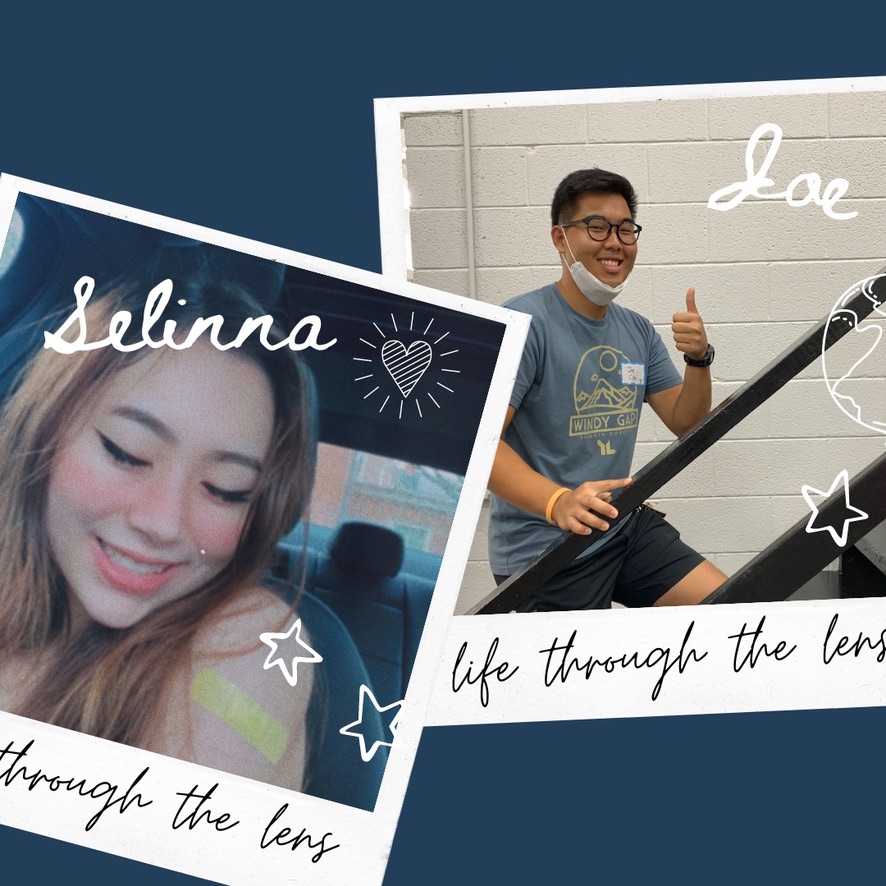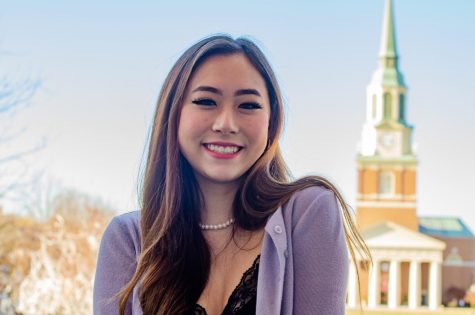Life through the lens
September 2, 2021
While I like minions and Joe likes bikes, these are not single characteristics that make up our identities or who we are. When I am on campus, people don’t look at me and only think of me as the “girl who likes minions.” Instead, people infer character based on many different attributes, traits and socio-cultural factors that make up our identities.
So who are we? Are we simply products of our ethnicity or race and then defined by our demographics? What does it mean to be a minority on campus?
As the Life editor, I am hoping to answer this question and also provide a platform for voices that may have not had the opportunity before to share their advice or, their life.
Life through the lens is a new weekly column that will be a space for minority voices to deliberate these ideas and more. No matter what walk of life you come from, this column is a safe space for you. I hope to foster an inclusive and safe space for those who may not have always had that environment.
From Joe…
“Can you open your eyes?”
“Ew! What are you eating? That smells.”
“Go back to China.”
Sigh. I’m not even Chinese. I remember walking through the bustling hallways of my high school when a random student pushed me and ran off, leaving a shocking remark in his wake — “you stupid chink!” I tried to search for my assailant, but the upstream of students going to their next class became an obstruction. A flood of emotions overwhelmed me, and I stood there with abject disillusionment. How could I not see that I was never meant to be part of this human race? A race that judged the next individual with a far too narrow scope of understanding and disdain for the foreigner.
I remember hearing my mother crying herself to sleep because of remarks I made:
“Why did we ever move to America? I hate it here! If we didn’t move, I wouldn’t have to feel like an alien. I wish I was born white from white parents!”
Not my proudest moment, but back then, I was left questioning the very existence of my culture and all its apparent caveats, and that didn’t help me earn a seat at the table or get invited to social events. The only thing I could really do was brush past the experience like the passive, docile creatures we were perceived as. I was expected to bottle it up and stay silent for me to assimilate into American culture — white culture.
Growing up in a predominantly white suburban district was never easy. Neither was coming to a predominantly white populated institution. So, when people told me that college is a place and time where one could reinvent themselves, I did just that — dissolving any ounce of Korean in me.
To go against my very nature, to go against my very identity was a hairline fracture to my core. The more I spent time outside as a wannabe Caucasian, the more the fracture grew and grew until I started disassociating myself as an Asian entirely. For the first year of college, I changed my demeanor; I changed how I dressed; I changed my voice to purge any hint of Asian accent, but ultimately, I couldn’t change my complexion — this beautiful, caramel, smooth-skin complexion.
For over a year and a half, I have been dealing with a major identity crisis. Do I like being an Asian American? Do I feel comfortable in my own skin and expressing my own heritage? Do people even like me for who I really am, or am I just a relevant creature that people want in their social circles so that they may feel more diverse? Am I being tokenized?
I want to go back in time and understand why that kid called me a chink in the hallway. Maybe, if I caught him, I could have punished the racism out of him. Maybe that would have helped me stand up for myself. But then again, I ended up contributing to racism by rejecting my identity.
If I couldn’t love myself for who I am, who would? It’s questions like this that make me reflect deeply about my identity and culture because I was placed on this earth without instructions on how to navigate through life in a critically unprincipled society. So much more could be said about the prejudiced environment that we live in. I am hopeful that this privileged platform allows me to share a glimpse of my life through the lens.
From Selinna…
“You look like a real-life anime girl”
“Do you watch anime? You look like someone that would watch anime.”
“When I first met you, I couldn’t decide if I wanted to be your boyfriend or your dad.”
These are just some of the things I hear on and off our campus.
Most of my childhood days were disconsolate and filled with endless wishes to be someone that I was not. These memories, some hazy and some I can’t forget even if I wished to, mostly took place in a small rural town located in North Carolina. Being raised in this environment, the xenophobic atmosphere was one that I was accustomed to and constantly reinforced as a result of deep-rooted isolation. These feelings all stemmed from my simple desire to feel like I belonged.
I would vehemently deny that I was bilingual or that my family owned an Asian restaurant — these being only a few of the actions I would take to weed out any evidence that I was Vietnamese. Acknowledging or accepting any of these would give them the ammunition to outcast me, to confirm that I was everything they said about me.
I could hide everything about myself — and even go as far as to condition myself to dislike the traditional Vietnamese dishes my family would make — but the one thing I could not change was my appearance. I hated that. My entire life, the beauty standard has been everything that I was not. While most kids wished for the latest toy, I have records of letters to Santa requesting that I could be born white, to have blonde and beautiful hair like sleeping beauty.
Now, as I’ve grown older and learned more about Vietnamese culture — who I am and where I come from, I’ve slowly started to love who I am and all the things that I have conditioned myself to hate have become some of my favorite aspects of who I am (Vietnamese food, clothing, etc.).
This is a double-edged sword. As I’ve embraced who I am more, I’ve also become more aware of the xenophobic treatment of East Asians in America — and further, the infantilization of East Asian women. Being on campus, I have been told, treated and looked at like an outsider.
Because, when people look at me, they don’t see all the things that make up who I am. Instead, they see what my appearance tells them I should be. From this, they proceed to create a biased character of who they believe that I am. This image that is placed upon East Asian women is always one of “innocence,” “anime-like,” and I’ve experienced these acts firsthand by the peers who claim to be “socially woke” at Wake Forest.
I don’t believe that a single column could cover the vast history of oppression and infantilization of East Asian women (a few of the many issues), but I am really hopeful that this column will serve as a platform for people like me who have always been afraid, that it will be a platform for voices who have never before had one.
If you resonate with this story, or if you have also felt out of place, I hope that you take advantage of this column. My contact is as follows,
Selinna Tran [Life Editor]
transn19@wfu.edu

















jum • Sep 3, 2021 at 12:13 pm
i am left speechless. selinna and joe, you both did amazing work here <3